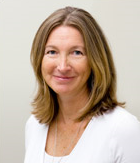- Calls to this hotline are currently being directed to Within Health or Eating Disorder Solutions
- Representatives are standing by 24/7 to help answer your questions
- All calls are confidential and HIPAA compliant
- There is no obligation or cost to call
- Eating Disorder Hope does not receive any commissions or fees dependent upon which provider you select
- Additional treatment providers are located on our directory or samhsa.gov
LGBT Community & Eating Disorders

Kim McCallum, M.D.
Kim McCallum, M.D. – Medical Director & Founder of McCallum Place
February 16, 2017

EDH: Dr. McCallum is the Founder of The McCallum Place and is here to share her expertise. Welcome, Dr. McCallum!
EDH: It’s great to have you all here today! Let’s get started with some of our questions.
EDH: @McCallum Place Q1: Please tell us a little bit about yourself and your current involvement in the eating disorder community.
Dr. McCallum: A1: I am a psychiatrist working with eating disorders for 27 years. Trained in Psychiatry at UCLA and Child/Adolescent Psychiatry at WashU STL.
Dr. McCallum: A1: Developed programs across the continuum of care, including outpatient, partial hospital, residential and inpatient care.
Dr. McCallum: A1: Advisory board of NEDA and IAEDP, Assoc Prof of Clinical Psychiatry at Washington Univ, Founder of McCallum Place.
EDH: @McCallumPlace Q2: What are some unique challenges individuals face who are part of the LGBT Community?
Dr. McCallum: A2: Adolescent stresses are great because of complicated social, peer and family responses, including stigma and bullying
Dr. McCallum: A2: Finding treatment providers that understand subculture, anticipate challenges, and offer relevant resources may be challenging
Dr. McCallum: A2: Many Providers still have not explored their own biases regarding gender identity and sexual preference
Dr. McCallum: A2: Support is important. Since the onset of the eating disorder often occurs at the same time as Coming Out, families may be struggling to adjust
Dr. McCallum: A2: Many LGBT youth and young adults experience stigma and bullying as well as may have been victims of sexual trauma
EDH: @McCallumPlace Q3: What increased risks might an LGBT individual face when it comes to developing an eating disorder?
Dr. McCallum: A3: Stress from bullying, depression, and sexual trauma can increase the risk for all EDs, especially for bulimia
Dr. McCallum: A3: Homosexual men, especially in urban communities, report intense focus on body size and shape, muscularity as part of their subculture
Dr. McCallum: A3: Homosexual males may show a high risk of body dissatisfaction, increasing risk
Dr. McCallum: A3: Trans-sexual and gender-queer adolescents may adopt restriction as a way of inhibiting hormones that induce sexual development
EDH: @McCallumPlace Q4: What eating disorders are more commonly seen in the LGBT community?
Dr. McCallum: A4: We have seen all eating disorders in our LGBT population, but especially anorexia and bulimia.
Dr. McCallum: A4: Homosexual men are at increased risk for AN, BN
Dr. McCallum: A4: Transexual males and females show 4 times the risk
Dr. McCallum: A4: Increased risks for particular EDs probably depend on factors related to types of body image pressures, genetics and family factors.
Dr. McCallum: A4: Sexual trauma might increase the risk of a binge-purge-type presentation
EDH: @McCallumPlace Q5: What are helpful resources that specifically address the challenges individuals with eating disorders face and who identify as LGBT?
Dr. McCallum: A5: T-Feed is an online resource
Dr. McCallum: A5: NEDA, EDHope both have helpful information, statistics and resources
EDH: @McCallumPlace Q6: How can family members/friends best support their loved one who identifies as LGBT and suffers from an ED?
Dr. McCallum: A6: Become educated, Recognize special concerns related to growing up LGBT
Dr. McCallum: A6: Be open, kind and loving; Isolation can increase anxiety and risk for depression and other mental health problems
Dr. McCallum: A6: Emphasize the importance of recovery and focused attention to healthy eating/nutrition and acceptance of natural body weight
Dr. McCallum: A6: Intensive treatment may be necessary to address complexity when symptoms are severe
Dr. McCallum: A6: Find treatment centers that have committed to staff training and awareness about LGBTQ concerns
EDH: Thank you to everyone who participated in our Twitter Chat today! And thank you for the great insight and info about teens and eating disorders @McCallumPlace
EDH: If you are struggling with an eating disorder, we hope this might be a helpful resource for you.
EDH: Please stay tuned for future Twitter Chats from EDH, and visit us at www.eatingdisorderhope.com
EDH: If you are interested in learning more about McCallum Place, please visit their website at www.mccallumplace.com
